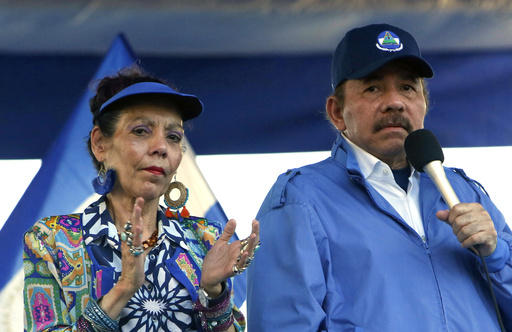
MEXICO CITY — On Wednesday, President Daniel Ortega of Nicaragua introduced a proposal for a constitutional amendment that would designate him and his wife, Vice President Rosario Murillo, as “copresidents” of the nation.
The reform must be approved by the legislature; however, given that Ortega and Murillo’s Sandinista party dominates Congress and all governmental institutions, its passage appears highly probable.
In addition to the copresidency proposal, Ortega’s initiative seeks to extend the presidential term from five to six years. Another bill put forward aims to criminalize the enforcement of sanctions imposed by the United States or foreign entities within Nicaragua.
These initiatives emerge amid a sustained crackdown by Ortega’s government following large-scale protests in 2018, which were met with violence.
The administration has systematically jailed political opponents, religious figures, and journalists, subsequently exiling many, which has resulted in hundreds losing their citizenship and possessions. Since 2018, the government has also dissolved over 5,000 organizations, particularly those with religious affiliations, prompting thousands to flee the country.
Dissident organizations, like the Nicaraguan University Alliance, have quickly condemned these moves, interpreting them as a continuation of authoritarian measures. They asserted on social media that these actions are institutionalizing nepotism and repression, significantly jeopardizing democratic principles.
Manuel Orozco, who directs a migration, remittances, and development program at the Inter-American Dialogue, critiqued Ortega’s reforms as “merely a formality to ensure the continuation of power within the family.” He noted that Ortega has previously referred to Murillo as his copresident.
While setting aside international sanctions may not yield immediate repercussions, Orozco cautioned that it could expose Nicaragua to “significant financial risk” and further sanctions from the U.S. Treasury Department.
He suggested that the proposed constitutional changes are part of a long-term strategy to maintain Ortega’s grip on power and were likely advanced on Wednesday to avoid inciting the incoming administration of U.S. President-elect Donald Trump.
Orozco indicated that while Trump may not focus heavily on democratic issues in regions like Nicaragua, he may not tolerate provocations either.
“This process, which undermines public will and the rule of law, paves the way for Ortega to retain power longer,” Orozco commented, noting that Ortega was re-elected for a fourth consecutive five-year term in November 2021.
